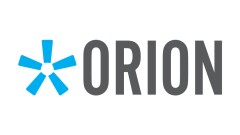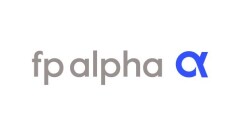Hey advisors! Financial Planning wants to see your stack.
In a new recurring series, we're catching up with those delivering financial advice to see what tools they rely on to make it happen.
Beyond just the basics, we're digging deep to find out
In addition to being a longtime advisor, Altfest runs a

For him, good tech and good advice go hand in hand. So Financial Planning sat down to ask him how many tools advisors really need, and what he keeps in his stack.
This interview has been lightly edited for length and clarity.
Financial Planning: In your opinion, what is the magic number of tools an advisor needs in their tech stack?
Andrew Altfest: I would say it's five. There are a lot more, of course. There are nine that we have in our tech stack. But in terms of go-tos, it used to be three: investment accounting, financial planning, CRM. But as the industry has evolved, and as we're doing more as advisors for clients, the scope of work changes. So does the software because you can't perform these services without them being digitally enabled. That three … that was good 10 years ago. Now, in the world of doing more for clients, you've got to have a couple more. So that magic number, I would say it's those three plus an advanced planning platform, and a digital marketing platform to grow your business. Those five are essential, I think, if you're looking to thrive as an advisor today and into the future.
FP: I want to focus on the need for marketing technology for a moment. Why is it so important now, and how did you handle marketing before these kinds of solutions were available?
AA: Before, it was a lot of word of mouth and, for us, the traditional press. Everyone has their own way of getting business. But the word of mouth was huge, and that's fine. But if you're trying to take that next step and grow beyond your client base, then you're going to be thinking a lot about a content marketing strategy. And you're going to invest in tools that will pay off for the 21st century. And the only way that you can actually have an effective content marketing strategy is by using one of those martech tools. Today, when you're thinking about that content marketing, you're thinking about, who do I want to be? Who's engaging with my content? How do I measure that? Who should I be taking action to follow up with and begin a relationship? Who's actually engaging with it? Who's clicking and opening my emails? Or my website? What's their pattern? That information is so valuable because then you can give that to your sales team, or the people in the office who are following up with prospects and begin that relationship. So it's kind of the automation of it, but as well as the intelligence that's coming from these tools that's telling you how you can be spending your time to be effective and grow your firm.
FP: Let's pivot to advanced planning. Why is that an essential part of an advisor's toolkit today?
AA: I mean, back in the day, there was no technology to go beyond retirement planning. So what was financial planning? Some years ago, it was retirement planning. And, you know, we used to use HP 12C [calculators], and then we started using planning software. But the scope of that was retirement planning. Now, to help clients in the world of estate planning, tax planning, insurance planning, there is nothing. I was talking to an estate attorney recently. I asked him, what software to use for estate planning? He goes, I use [Microsoft] Word. And I'm like no, no. Oh, my God, Even the attorneys are not using software in any serious way. So there hasn't been software for the scope for financial advisors to help clients. And therefore, the work in this advanced planning area of estate tax and insurance has all been manual. You're reading documents and you're actually trying to figure out how a client can improve and create a visual digital experience for the clients that they can understand where they are today and what's going on.
I was just talking to a client who was so confused about what she had. She was like, I just got some new money coming in. My mother passed away recently, and then I have what I have, and now I have "new friends." She called them new friends which are new trusts that she now controls. And no one understands what's going on. So you have to help educate the client. And then you have to automate. You have to not only save time so that the work can be applied to all clients without you spending more time. But then you also have to be able to identify where the opportunities are to educate yourself and get up. As advisors, most of us are not lawyers. Many of us are not accountants or insurance people. So we have to be able to have that insight within the software that tells us where the opportunities are.
FP: Wealthtech is currently undergoing rapid innovation and evolution. What are your thoughts on how the space is growing right now?
AA: I think it's the most exciting time to be an advisor and to be looking forward. One of the things that has come out that has really captured the imagination of advisors and consumers has been ChatGPT and large language models. The
What we're finding ChatGPT has been helping us a lot with has been written content. Start with a quarterly letter. Start with an email to a client about a topic that is complicated. Start with communications where you're trying to take a recorded webinar and turn it into an article or a blog post or into a LinkedIn post. For those types of things, ChatGPT is immensely helpful. For quarterly letters, we have someone in our office who's a CFA. A really smart person. She drafted the last quarterly letter to our clients. It was very well written, but it was nine pages long. So ChatGPT is going to help you automate that and cut it down significantly. When we're doing webinars, we get a transcript of a webinar, get it uploaded to ChatGPT, and that helps us turn it into articles. And at FP Alpha, we have a large language model that we've developed to read estate documents. And so you upload those documents, and instead of having to read them, they're understood by AI so that you can actually visualize what's there and take the key information. So I think that technology has been groundbreaking. That's very exciting for the future as to what additional things are going to come out as well.
FP: What wealthtech topics do you expect to lead the conversation in 2024?
AA: I think it's this focus on advisors being the general physicians of finance. That's what we're trying to do and what we aspire to do. And that's what we see other advisors doing as well. There's more competition on the investment side, less of a belief that the additional value is going to be provided there. And more emphasis on providing additional services to clients while helping them as the general physician in the middle of everything. The question is, how do I get the tools to do all this work without spending a trillion hours? You can only do that trillion hours for the wealthiest people, so that the advice gap is there when it comes to the bread and butter clients of an advisor. And that's where I think the real potential is, and where the investment is being placed. I think that there's going to be more options, more choices, more people trying to figure out how this new technology can automate and move us forward in the industry to be able to do more for clients. And save a lot of time. Allow us as advisors to get more time back in our days to be able to spend with clients coaching them, meeting with them and doing the things that make us uniquely human, while allowing the technology to play its role as the genius system.
And without further ado, here is Andrew Altfest's tech stack along with a few notes on why he picked each tool:















